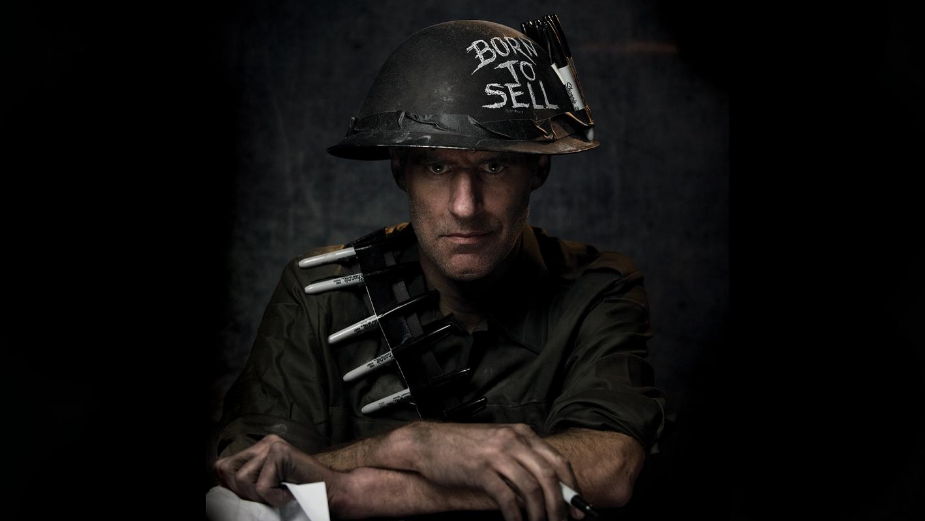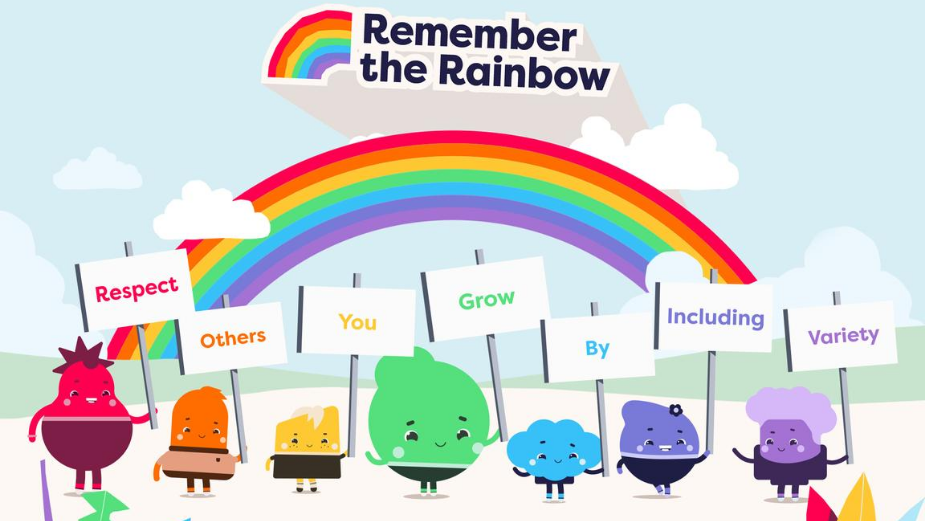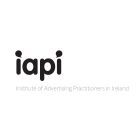
Creative is Native: “Talent With Humility Is Far More Attractive Than Talent With An Ego”

When Little Black Book approached IAPI to do an interview series on the movers and shakers in the advertising industry in Ireland, Damian Hanley's name immediately sprang to mind.
Damian is constantly pushing the boundaries, along with IAPI member agency In The Company of Huskies. We are so grateful that he is such a supporter of our IAPI initiatives, like the diversity and inclusion campaign for youth services charity BeLonG To, leading to the brilliant ‘Remember the Rainbow’ idea, which Damian talks about below.
I would just like to thank Damian on behalf of IAPI, for continuing to innovate and shake things up, and for helping Ireland gain the global recognition it deserves as a centre of excellence in the commercial creative industry. Charley Stoney, CEO, IAPI.
Q> You describe the Irish advertising scene as being very creative and original but potentially held back slightly by its own humility. Why is this and how do you think Irish agencies and creatives can start to break those boundaries?
Damian> Before I get to my view here, it’s important to put a bit of historical context to a theory behind the Irish psyche. Irish society is still described as being relatively new. We gained independence nearly a century ago - but it is really only in the last 20 years that Ireland has changed dramatically. We have one of the youngest populations globally and take pride in being known as a friendly nation.
I think that the Irish desire to get along with others tends to have a huge benefit when it comes to global trade and doing business. But it may, on occasion, hold us back when it comes to creativity. We sometimes feel pressure to ensure those around us are not pushed too much to a point where they feel uncomfortable. This can be a good thing in terms of relationships and culture and that is hugely important. But on the odd occasion, I have seen good ideas die that should have been allowed to live.
In addition to this, there can be a tendency to benchmark work against what is happening locally or what people might think of it, rather than what is simply the best strategic and creative idea. Often I hear “I love it and if it was just me, I would do it but…”.
The way around this is to ensure that both those within the ad agencies and clients are benchmarking their work against the best in the world rather than what is happening locally. It is the agency’s responsibility to help ensure that both are inspired and aware of the best work BEFORE ideas are presented and judged. This helps give people a more global perspective and courage to make the right choice for the brand and creativity.
Q> Is there any work that has come out of Ireland (Huskies or from other agencies) that you wished the world had heard more about?
Damian> I hope our Remember the Rainbow for the charity ‘BeLongTo’, born out of an IAPI initiative, gets the attention I feel it deserves – we are trying to change a 100 year old way of remembering the colours of the rainbow with a more positive message about the importance of diversity. We hope it will play a small part in helping to create a more tolerant and kinder society. I also hope our Allianz Leagues campaign does well, we were very proud of it but everything stopped shortly after it broke due to COVID-19.
I also thought the post box for homeless people was a brilliant idea from JWTFolk. And I wish Chemistry had got more recognition in awards for their work like ‘I want to get cancer’ and the ‘Fallen fern’ idea in memory of Jonah Lumu for the Irish Examiner. I felt this should have won more international awards.
Another one I remember was when I was at Rothco and AIB wanted to communicate that they were supporting business in the middle of the banking crises around 2012. Instead of doing a campaign, we had the idea to use the entire ad budget to make ads for the small business themselves. This was a very brave decision by AIB, but it paid off and in my view was the only way to demonstrate support at that time, rather than talk about it. I felt it should have won more awards at the time.
Q> The advertising landscape in Ireland seems to be growing rapidly, how has it changed over the past five years?
Damian> Every Irish agency is now looking for international recognition rather than local which has raised the ambition. We have started to realise that we can compete on the world stage. Irish agencies have had great success internationally in awards, often in the not for profit sector with really smart projects that required a quick and clever response to a current societal issue.
One slight watch out is that the value of creativity has never been higher, with many diverse industries realising its potential to have a transformative effect on business. This means that many companies will try to claim creativity as an add-on to sell their own technique or process. Talking about it is one thing, creating it is another. This has muddied the waters and made it more difficult for clients to choose the right approach. In my view, no technique, process or targeting should mask the responsibility of creating an original idea. I believe ad agencies are still best placed to deliver on that.
Q> What do you love most about Irish talent?
Damian> Talent with humility is far more attractive than talent with an ego. That makes for a great community and I love the people in the industry. But maybe this feeds back into point one! Perhaps a bit more ego is required…
Q> How do you think more Irish advertising talent can be pushed globally?
Damian> I think international awards like the Effie’s, Immortal Awards, Cannes, D&AD etc can help this. I am not sure anything other than this, will be anywhere near as effective. It’s a quick easy benchmark that the world uses to assess talent. Not always fair, as awards don’t always reflect an agency's ability to sell product or services or be effective.
Q> Why are confidence and passion key to global success?
Damian> Confidence and passion are the only things that keep driving you forward. Without them, you would burn up in the atmosphere of reasons why things won’t work and the sight of a bin full of ideas that didn’t even get presented.
Q> Your recent work ‘Remember the Rainbow’ for charity, BeLonG To has started being put into practice across English speaking countries worldwide. How did you approach creating this new mnemonic learning resource and what was the inspiration behind the idea?
Damian> We work with the charity BeLongTo and we discovered that 73% of LGBTI children still feel unsafe at school. This came as a bit of a shock to us, as we thought the world had moved on. We then had the thought – the most powerful symbol of tolerance and diversity in the world – the rainbow – is taught every day to children using ‘Richard Of York Gave Battle In Vain’. Rather than thinking about some bloke who had a battle, we knew there must be a more positive way to remember it, especially as children become aware of differences around the same age as they are learning the rainbow. So we thought of one – Respect Others, You Grow By Including Variety. We made a website and an animated film and we are delighted. Educational bodies and resources are beginning to pick it up.
RTE and the BBC ran it on their national teaching hubs. Educate Together schools want to adopt it from September. The Department of education listed it as an official online resource for teachers. The Minister of Education tweeted it. So did the Ministers for Culture and for Finance.

Q> You’ve been working globally with Smurfit Kappa. We know them as a cardboard manufacturer but I understand you are helping them transform into a company that can have a huge and positive impact on the environment. Can you tell us about how Huskies and Smurfit Kappa have been doing this so far?
Damian> There is a great expression which I believe in: ‘There is no such thing as a boring client, just boring ideas’. B2B business and communication deserve the same level of creativity and passion as the supposedly more ‘sexy’ brands. And Smurfit Kappa is a great example.
If someone had invented a cardboard box today, it would be hailed as the new wonder material and a great saviour against a world filling with plastic. We always knew Smurfit Kappa had massive potential creatively - the communication was too dry in the past and didn’t reflect the exciting things they were doing. The marketing team reflects that ambition, and that combination has helped achieve business results and creative awards that make us all very proud. But I believe we are only getting started.
Q> How did you personally learn to be more confident in your work and how has this helped you push your work in new ways?
Damian> We all suffer from imposter syndrome. For example, when you lose a pitch or present an idea that you have put your heart and soul into and passionately believe that it will do wonders for the brand, it is very tough to have that shot down or lose the pitch to a more ordinary idea. I genuinely am happy to lose to a better idea. But it’s very tough when it isn’t a better idea. This does knock you.
But work you see working is a great confidence builder. And the benefit from experience is thankfully I can reference many campaigns that have achieved results when assessing work now. Obviously what works in the past does not always work in the future, but it helps!
I think my first experience of this a long time ago was early in my career on a frozen fish product called Donegal Catch where our campaign helped profits rise by 600%. My thought at the time was “this advertising stuff may actually work!” Since then I have been lucky to have been involved in campaigns such as Nissan Micra and SVP that have won many effectiveness awards. That helps give you the confidence to believe in what you are doing.
Q> What sort of work are you most passionate about creating right now?
Damian> The ability to communicate is a powerful one. I would like to use it responsibly to help address issues that may help play a part in a better future. For example, the following facts are pretty motivating in creating a desire to do what we can as communicators:
Over half the plastic EVER produced has been made in the last 15 years.
Humanity has wiped out 60% of animal populations since 1970.
73% of LGBTI children still feel unsafe in school.
132 million girls are out of school worldwide. Education is a critical tool in helping young girls make decisions about their own future and family planning.
Q> How do you stay inspired when you hit a creative block? You’ve told us before you are a big surfing fan. Does being out on the water help creative juices flow?
Damian> I read non-fiction books all the time – I am currently reading The Body by Bill Bryson, I read the obituary section in the Irish Times on Saturday for amazing synopsis of life stories. Sounds weird but try it! And I talk to people. I often start conversations with total strangers. Every idea you do reflects every book you’ve read, every friend, experience, film or conversation. In other words, YOU are the idea. The broader your reference and interests, the better. The best stories and ideas are all around us. Keep the butterfly net open and you tend to catch them.
Surfing doesn’t really help this aspect though – although it has featured in some campaigns! But surfing is great at clearing the mind, and it is very important for that: When I am surfing all I can think is, “Am I in the right spot?” “Is that a set on the horizon?” “Why didn’t I do more press-ups?”
Q> What’s the best piece of advice you have received in your career?
Damian> I’m not gonna stick to the brief here and say 2 bits of advice:
I tried and gave up at many college courses and eventually I went to New York to seek (and not find) my fortune. My sister called me on the phone and said “Come back and try one last college - this advertising course – it only takes 8 months and you might like it”. That phone call saved me! The lesson here for me was, the answer may be just around the corner – keep going.
Jude Healy, my long suffering and brilliant creative partner for many years who gave me untold amounts of advice, but one he always said was “interrogate the product until it speaks”. He will claim it’s not his expression, but I’ll always thank him for it.











